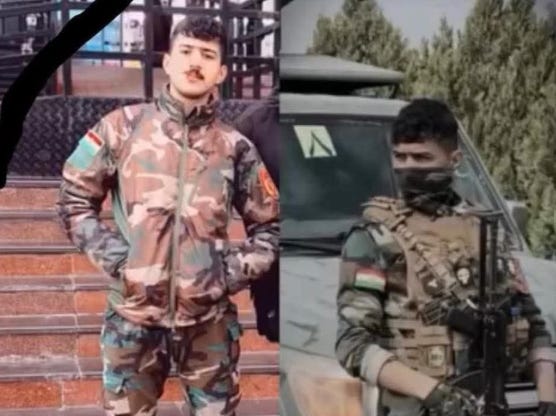Tribes and Territory, Iraq’s Fractured State Apparatus Faces Armed Pushback
From Erbil to Maysan, tribal clashes reveal a deeper crisis of authority and the limits of state control across Iraq’s peripheries
Violence flared across two areas in the past 24 hours both in the Kurdish and Arab tribal regions. On the 8th July, clashes erupted in Erbil’s Khabat district between Zervani Peshmerga units and armed members of the Harki tribe.
By the evening of the 9th July, the confrontation had left two dead and at least 11 injured, including security personnel. Roads were blockaded, reinforcements delayed, and an already brittle order teetered on collapse.
Initial reports indicated the fighting began after government forces attempted to serve arrest warrants in the area, an ostensibly routine operation. But the reaction was anything but. Tribal fighters, reportedly loyal to Khurshid Harki, resisted with weapons, reigniting long-standing tensions.
The Harki, despite their historic alignment with pro-government Kurdish factions, have long operated in a political grey zone, armed, autonomous, and reluctant to submit to Erbil's directives.
Their violent mobilisation in Khabat reveals how quickly old alliances unravel when state actions encroach on tribal autonomy. The fact that elite security units were needed to contain a rural confrontation speaks volumes about the depth of mistrust.
No public statement has been issued by the Kurdistan Regional Government. Silence, in this case, feels strategic. Acknowledging the tribal nature of the conflict risks undermining the image of centralised Kurdish governance. But the facts on the ground speak louder than press releases. Roads were seized, reinforcements stalled, and local control collapsed within hours.
"We are KDP and Peshmerga ourselves. Our issue is not with the KDP, but rather a legal dispute." - Harki leader Xurshid Harki
Meanwhile, to the south, another tribal clash erupted in Al-Sakhra village, Maysan province.
Four were killed and four wounded, including two security officers. Here, too, the fighting began suddenly and spiralled rapidly. Army and police forces carried out raids in an effort to arrest those involved. The causes, while less clearly linked to political factions, remain familiar: longstanding blood feuds, contested land rights, and a complete breakdown of trust between tribes and the state.
Maysan is no stranger to violence. Tribal rivalries there are cyclical, flaring every few weeks with little warning and even less resolution. Each time, local forces launch reactive raids, arrest a handful of suspects, and declare the area secure until the next eruption.
Governance here is less about prevention and more about crisis containment. There is no credible strategy for de-escalation, no sustained effort to reconcile tribal and state interests.
What ties Khabat and Maysan together isn’t just the violence. It’s the signal that both federal and regional authorities lack effective control over tribal areas. Arrest warrants and raids are increasingly triggering armed responses rather than compliance. State authority, where it exists, is enforced with overwhelming force. And even then, only temporarily.
The unspoken truth is that both the KRG and Baghdad rely heavily on local intermediaries, tribal leaders, paramilitary groups, and political clients to maintain order in the peripheries. But those intermediaries are not passive actors. When the state moves against them, as it did in Khabat, they push back. Hard.
This dynamic creates a dangerous ambiguity. Tribes like the Harki can be allies of the state in one moment, and adversaries the next. Their loyalty is conditional, their mobilisation capacity intact, and their political leverage considerable. The same holds true in southern Iraq, where tribal sheikhs often act as informal governors, mediating disputes and dispensing justice outside formal structures.
The question, then, is not just why these clashes happen, but why they continue. Why does state enforcement so frequently provoke violence?
And why do authorities persist with a reactive, force-heavy approach that has failed repeatedly?
Part of the answer lies in political paralysis. The KRG is fractured, its security forces split between rival parties. Baghdad remains distracted by budgetary crises and political horse-trading. Neither has the appetite or perhaps the legitimacy to reform tribal-state relations meaningfully.
There are no quick fixes. But without a shift in how the state engages with tribal areas more negotiation, less coercion these eruptions will only continue. Each one chips away at the already fragile notion of central authority. Each one reminds armed groups that the state’s reach is limited, its presence conditional.
As of this evening. Khabat has calmed. Maysan, too, has quieted, though no one expects that to last.
Iraq’s patchwork of loyalties often frays, and neither federal nor regional leaders seem prepared to confront what that means.







